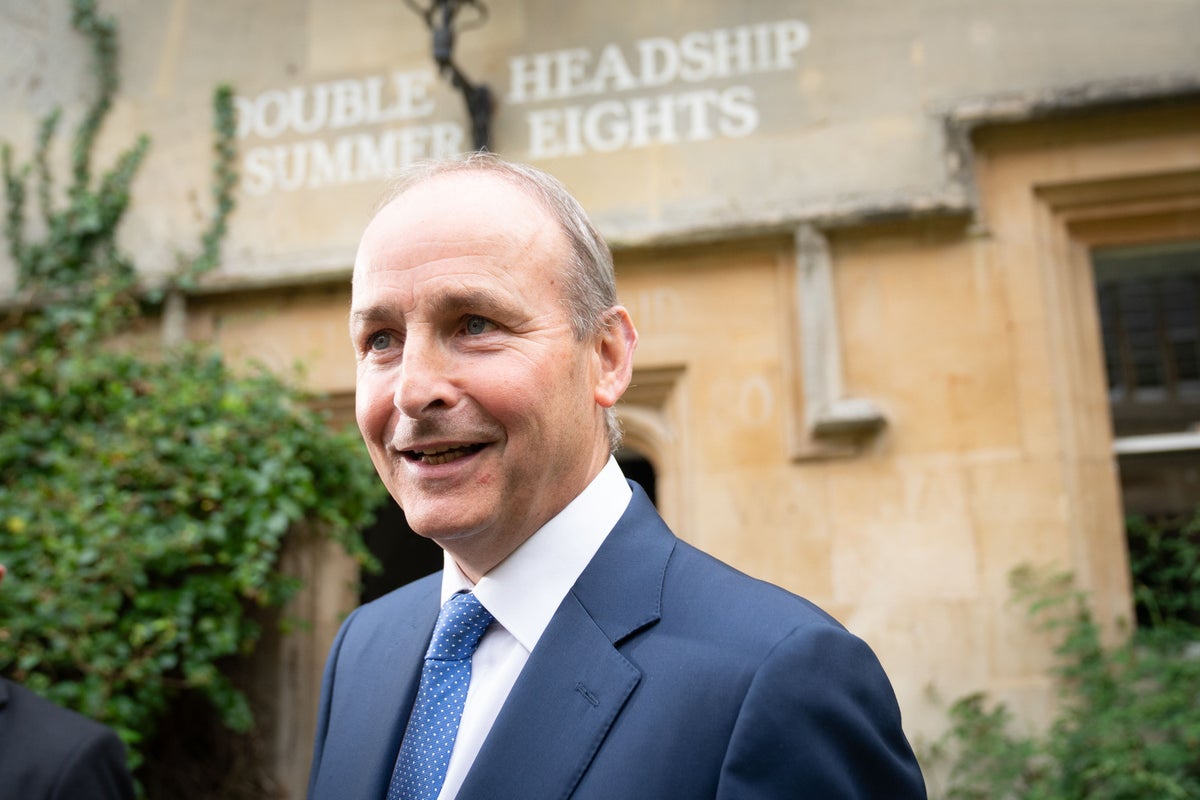
The UK and Irish governments must work in “lock step” to ensure stability in Northern Ireland in the ongoing absence of devolution, Ireland’s deputy premier has said.
Addressing the annual British Irish Association (BIA) conference in Oxford, Micheal Martin said it was important to “make every use” of existing East-West political mechanisms to provide the direction Northern Ireland required during the current political impasse.
In particular, he said the two governments should look “creatively” at how to maximise the British Irish Intergovernmental Conference – a body that brings UK and Irish ministers together to examine issues related to Northern Ireland.
Mr Martin also raised the prospect of the civil services in Whitehall, Stormont and Dublin working more closely and sharing experiences.
He said a closer working relationship between the UK and Irish governments could generate the “momentum” needed to secure a return to devolution in Belfast.
Mr Martin told the conference he wanted Northern Ireland to be a “better, happier, healthier and more prosperous place”.
“The first, essential, building block to achieving this is the two governments working in lock-step. When that falters, peace and progress falter,” he said.
“The bilateral relationship, and our partnership on Northern Ireland, is, frankly, stronger than it was this time last year. But much more remains to be done.
“We must work together with common purpose, impartially, for everyone in Northern Ireland, and be seen to do so.
“There may be tough days ahead of us, but there are much, much tougher days behind us.”
The BIA brings together politicians, business leaders and civic society representatives who share an interest in UK/Irish relations.
Northern Ireland Secretary Chris Heaton Harris was in the audience for Mr Martin’s speech at Pembroke College in Oxford on Friday evening.
The Tanaiste said there was a “duty” on the two governments to work closely together to support a return of the institutions.
“If there is no positive resolution, then we must make every use of the East-West mechanisms to provide the direction and stability that Northern Ireland and its people urgently need,” he added.
The DUP has been blocking powersharing for more than a year in protest at the internal UK trade barriers created by the Brexit’s contentious Northern Ireland Protocol.
The party says the recent deal struck by the EU and UK to reform the protocol – the Windsor Framework – does not go far enough to address its concerns and has made clear that it will not countenance a return to devolution until the UK government provides further assurances, by way of legislation, over Northern Ireland’s place within the UK internal market.
Other parties have urged the DUP to return to Stormont as the region is beset by significant challenges, including around finances and public services.
Senior civil servants are continuing to run government departments in the absence of elected ministers.
Mr Martin said relations between the two governments had improved “significantly” since Prime Minister Rishi Sunak came to power, but he said there was scope for further cooperation.
The Tanaiste reiterated his concerns about the UK’s contentious plans to deal with the legacy of the Northern Ireland Troubles – planned legislation that includes a controversial form of limited immunity for some perpetrators of crimes committed during the conflict.
Mr Martin said the Legacy Bill risked damaging the process of reconciliation in Northern Ireland.
“Some may be tempted to see the Bill’s enactment as drawing a line under the legacy issue,” he said.
“Sadly, it will not – instead, I fear it will ensure legacy remains a source of contention, suspicion and mistrust, with little truth, no apologies and hurt layered upon hurt. And while no approach would be perfect, it is a matter of great sadness that the agreed way forward was never given its chance.
“In the absence of an agreed way forward on this most difficult of issues, I worry that the past will infect the politics of the future.”
Mr Martin stressed the need for the UK and Irish governments to put particular focus on securing reconciliation.
“The hard politics comes from reconciling the differing perspectives, in walking the hard yards of leadership to find the highest common denominator, to make Northern Ireland the best home possible for everyone,” he said.
“I worry that if we cannot achieve this, young people will ask why do I stay? I take hope from the fact that this was done before, twenty-five years ago, with the two governments at the helm.
“That’s where, in my view, London and Dublin can and should help, bringing our experience and knowhow to work on the day-to-day issues that can make lives better. For example, I want to share our experiences in dealing with areas of multiple deprivation, with those left behind by education systems.
“Imagine how much more we can each do for those most in need by being open to sharing experiences, by investing in each other. The three Civil Services working together. Using the North South bodies to deliver better healthcare, better food, better jobs to the benefit of all.”
Speaking to reporters ahead of his speech to the conference, Mr Martin said the restoration of powersharing was also “critical” to securing fresh economic investment in Northern Ireland.
The UK government has organised an investment conference in Belfast later this month that will showcase the region to more than 100 international companies.
“Of course, the backdrop is not perfect to this conference, because what most investors require is political stability and political certainty and I think the restoration of the executive and the assembly, I think is critical for the future economic development in Northern Ireland and in particular in terms of inward investment,” said Mr Martin.
Earlier on Friday, Mr Martin visited the London Irish Centre where he met staff and representatives of Irish community organisations in the UK capital.







